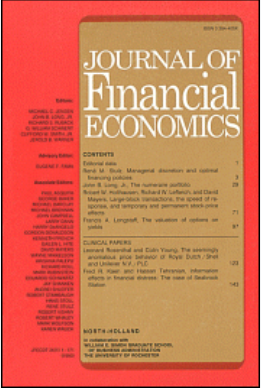社会偏好与企业投资
IF 10.4
1区 经济学
Q1 BUSINESS, FINANCE
引用次数: 0
摘要
本文提出了一个研究投资者社会关注如何影响技术选择的框架。结果主义偏好(总体伤害的负效用)只有在投资者协调的情况下才会影响结果,除非内化伤害独立于投资者的数量。非结果主义偏好(股票持有的负效用)无论协调与否都会影响结果。当技术供给的风险分担后果较小(例如,高度相关的回报)时,这两种偏好都有更强的影响,而且它们的影响不能从资本成本差异中推断出来。当危害是随机的,污染企业对社会投资者的风险可能会降低。这取决于社会偏好的类型和强度,可以支持或阻碍绿色转型。本文章由计算机程序翻译,如有差异,请以英文原文为准。
Social preferences and corporate investment
This paper presents a framework to study how investors’ social concerns affect technology choices. Consequentialist preferences (disutility from aggregate harm) influence outcomes only if investors coordinate, unless internalized harm is independent of an investor’s mass. Non-consequentialist preferences (disutility from stockholdings) affect outcomes regardless of coordination. Both preferences have stronger impact when risk-sharing consequences of technology supply are small (e.g., highly correlated returns), and their effects cannot be inferred from cost-of-capital differences. When harm is stochastic, polluting firms may appear less risky to social investors. Depending on type and strength of social preferences, this can support or hinder the green transition.
求助全文
通过发布文献求助,成功后即可免费获取论文全文。
去求助
来源期刊

Journal of Financial Economics
Multiple-
CiteScore
15.80
自引率
4.50%
发文量
192
审稿时长
37 days
期刊介绍:
The Journal of Financial Economics provides a specialized forum for the publication of research in the area of financial economics and the theory of the firm, placing primary emphasis on the highest quality analytical, empirical, and clinical contributions in the following major areas: capital markets, financial institutions, corporate finance, corporate governance, and the economics of organizations.
 求助内容:
求助内容: 应助结果提醒方式:
应助结果提醒方式:


